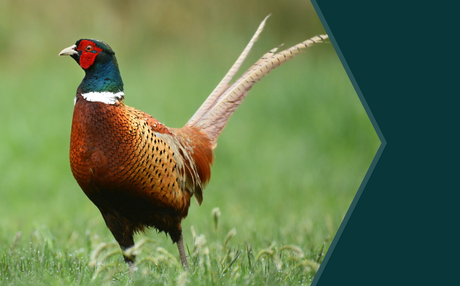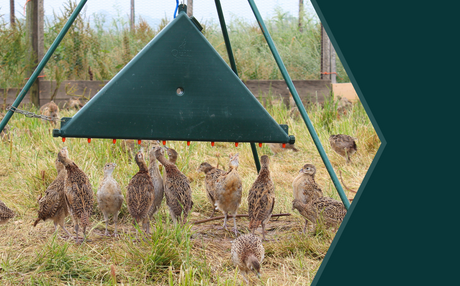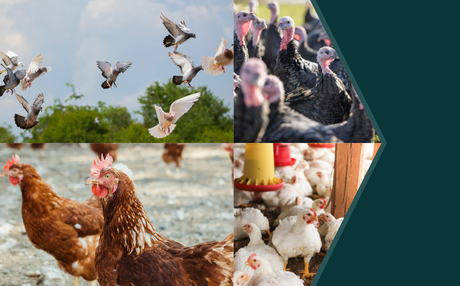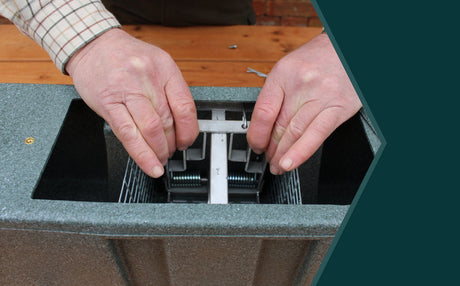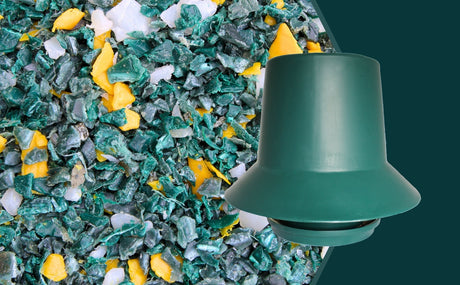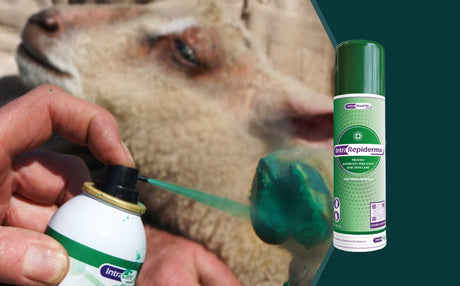Using organic acids in the drinking water of birds has become an increasingly popular option for preventing disease without antibiotics. So what makes organic acids so effective? We've put together a list of our most asked questions together including information on our bestselling Quill Boost Tonic.
Why use organic acids in pheasants and partridge drinking water?
Since the ban on Emtryl in the late 1990’s and the general crack down on antibiotic usage in rearing pheasants and partridge, game farmers and gamekeepers have looked for a legal alternative and one that reduces the need for expensive vet consultations and medicines which lower profits.
So how do we rear healthy, strong poults? Whilst good husbandry such as disinfected sheds and better hygiene helps to cut down disease causing bacteria and germs, what you supplement the drinking water with is essential.
How does acidic water help game birds?
Water, especially “open” water (such as the Mini Masters or Watermasters), spreads various disease-causing bacteria through the water from bird to bird. Lowering the pH of the drinking water by adding organic acids will help kill the bacteria in the water itself and reduce the spread of disease amongst the flock.
Acidified water also helps a game bird’s digestion by lowering the pH in the gut. Better digestion of food results in improved conversion of expensive crumb feed or pellets into growth and weight gain for the game birds. Lowering the pH in the intestines also helps reduce the risk of bad bacteria and protozoa such as Hexamita.
What acid is in Quill Boost Tonic?
Quill Boost Tonic contains 3 main organic acids; formic acid, propionic acid and lactic acid. Formic acid kills salmonella, propionic acid is strong against yeast (but won’t destroy all yeast – see below on water sanitisers) and lactic acid kills e-coli (which can cause yolk-sac infection).
How else does Quill Boost Tonic help pheasants and partridge?
As well as organic acids, Quill Boost tonic also contains essential amino-acids (the building blocks of protein) and chelated minerals.
Chelated minerals have several purposes. Chelated copper and zinc have a natural anti-bacterial effect both in the drinking water and in the gut, helping to reduce disease.
The amino acids and zinc are also essential in the production of game birds flying muscle, gut linings, feather production and the skin.
In supporting skin and feather production, birds on Quill Boost Tonic will feather up quicker, helping them to come off gas heaters and survive rain downpours in the runs or release pens.
What age of pheasants and partridge should have organic acid in their water?
All stages of game rearing should acidify water, from the over-wintered laying birds to the day-old chick and even when poults are released into pens.
Many game farms use the hanging red bell drinkers such as the watermaster for their adult layers which is a form of open water. However, it is essential that laying birds should have their water supplemented with organic acids to help prevent diseases such as mycoplasma, especially as the hen pheasant can pass mycoplasma through the egg to the unhatched chick. Sick chicks, even if treated with antibiotics such as Avilosin, rarely make strong high-flying pheasants or partridge.
When should you stop putting organic acid in the water?
If the worst should happen and chicks or poults do need to be treated with veterinary medicines such as antibiotics or they need to be wormed or vaccinated, the acid should be stopped during the treatment but re-started immediately afterwards. It is well known that antibiotics will upset the digestion system. The levels of the minerals in Quill Boost Tonic help to repair the gut wall quicker, leading to a quicker recovery time and better ability to covert expensive crumb or mini pellets into growing power.
What water pH level should pheasants and partridge have?
The drinking water of game birds should be between pH 3.8 - pH 4.2. Above a pH of 4.2, the bad bacteria can survive and thrive in the water.
Do you need to use a water sanitiser to stop biofilm if you use an acid?
Yeast, which occurs naturally in drinking water, can survive down to an extremely acidic pH of 2. This is too acidic for a bird to drink. Therefore, we recommend combining using a water cleaner, Quill Water-Pure, to purify and care for your water pipes at the same time.
Can Quill Boost Tonic help with Rotavirus?
Rotavirus is a very infectious disease which attacks the cells in the gut lining of game birds, destroying them. The guts are of course where water and nutrients are absorbed.
Rotavirus is usually seen in chicks under 2 weeks old when the death rate can be high causing obvious financial strain through the losses. Veterinary treatment is difficult as there is no specific treatment for the virus itself. Establishing healthy guts in young chicks will make them more resilient to outbreaks of Rotavirus. The chelated minerals of copper and zinc in the Quill Boost Tonic will help develop strong guts, as well as help repair gut lining.
Can water additives help with Coccidiosis?
Coccidiosis, or Coxy, is a parasite that lives in the intestines and is hard to kill. Partridge are particularly at risk from Coccidiosis and it can lead to a high mortality rate. As above for Rotavirus, the minerals in Quill Boost Tonic are particularly good for gut health and therefore provide greater resilience to gut diseases and quicker recovery rates.
Should I use Quill Boost Tonic in the release pen?
Yes. Being released to wood is a stressful time for poults and supporting their immune system with Quill Boost Tonic will help them fight any disease. Red hanging bell drinkers are often popular with gamekeepers in a release pen but this open water is high risk for disease spreading. Using an organic acid in the drinking water will therefore help. If you use an IBC for your water, the mixed-up solution will keep for 6 months.
How cost effective is Quill Boost Tonic?
By reducing death rates, reducing vet bills and increasing rearing percentages, game farmers tell us Quill Boost Tonic pays for itself and increases their profits. If you would like to know how many litres of Quill Boost Tonic you would need to rear your birds and what it will cost, please contact us and we will do the calculations for you.
Do you do a budget version of Quill Boost Tonic?
We do offer a cheaper alternative, Quill Acidify, which is used in the poultry industry. However, Quill Boost Tonic was specifically designed to support the needs of flying birds with its added amino acids and chelated minerals. Please contact us to speak to a member of our team about which organic acid product is bets for you birds.


